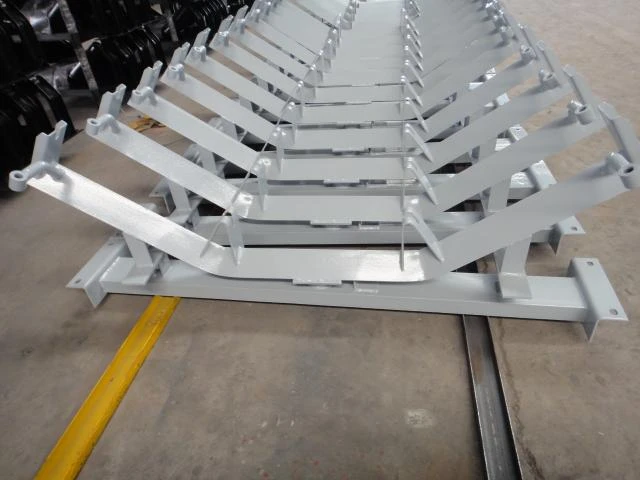 Afrikaans
Afrikaans  Albanian
Albanian  Amharic
Amharic  Arabic
Arabic  Armenian
Armenian  Azerbaijani
Azerbaijani  Basque
Basque  Belarusian
Belarusian  Bengali
Bengali  Bosnian
Bosnian  Bulgarian
Bulgarian  Catalan
Catalan  Cebuano
Cebuano  Corsican
Corsican  Croatian
Croatian  Czech
Czech  Danish
Danish  Dutch
Dutch  English
English  Esperanto
Esperanto  Estonian
Estonian  Finnish
Finnish  French
French  Frisian
Frisian  Galician
Galician  Georgian
Georgian  German
German  Greek
Greek  Gujarati
Gujarati  Haitian Creole
Haitian Creole  hausa
hausa  hawaiian
hawaiian  Hebrew
Hebrew  Hindi
Hindi  Miao
Miao  Hungarian
Hungarian  Icelandic
Icelandic  igbo
igbo  Indonesian
Indonesian  irish
irish  Italian
Italian  Japanese
Japanese  Javanese
Javanese  Kannada
Kannada  kazakh
kazakh  Khmer
Khmer  Rwandese
Rwandese  Korean
Korean  Kurdish
Kurdish  Kyrgyz
Kyrgyz  Lao
Lao  Latin
Latin  Latvian
Latvian  Lithuanian
Lithuanian  Luxembourgish
Luxembourgish  Macedonian
Macedonian  Malgashi
Malgashi  Malay
Malay  Malayalam
Malayalam  Maltese
Maltese  Maori
Maori  Marathi
Marathi  Mongolian
Mongolian  Myanmar
Myanmar  Nepali
Nepali  Norwegian
Norwegian  Norwegian
Norwegian  Occitan
Occitan  Pashto
Pashto  Persian
Persian  Polish
Polish  Portuguese
Portuguese  Punjabi
Punjabi  Romanian
Romanian  Russian
Russian  Samoan
Samoan  Scottish Gaelic
Scottish Gaelic  Serbian
Serbian  Sesotho
Sesotho  Shona
Shona  Sindhi
Sindhi  Sinhala
Sinhala  Slovak
Slovak  Slovenian
Slovenian  Somali
Somali  Spanish
Spanish  Sundanese
Sundanese  Swahili
Swahili  Swedish
Swedish  Tagalog
Tagalog  Tajik
Tajik  Tamil
Tamil  Tatar
Tatar  Telugu
Telugu  Thai
Thai  Turkish
Turkish  Turkmen
Turkmen  Ukrainian
Ukrainian  Urdu
Urdu  Uighur
Uighur  Uzbek
Uzbek  Vietnamese
Vietnamese  Welsh
Welsh  Bantu
Bantu  Yiddish
Yiddish  Yoruba
Yoruba  Zulu
Zulu Rubber Roller Design for Enhanced Impact Performance and Durability in Various Applications
The Impact of Rubber Rollers in Manufacturing and Industry
Rubber impact rollers are essential components in various industries, serving a multitude of applications ranging from material handling to the transportation of goods. As industries evolve and technological advancements continue to emerge, the importance of these rollers in enhancing productivity and efficiency cannot be overstated.
Rubber impact rollers are designed to absorb shock and reduce wear during the operation of conveyor systems. Their primary function is to support and guide conveyor belts while also dampening vibrations that could potentially disrupt the movement of materials. This capability is crucial in preventing damage to both the conveyor system and the transported goods, thereby reducing maintenance costs and downtime.
One of the primary advantages of rubber impact rollers is their ability to enhance load-carrying capacities. Using high-quality rubber materials, these rollers can withstand heavy loads and extreme conditions, making them suitable for use in industries such as mining, aggregates, and recycling. The elasticity of rubber allows these rollers to compress under weight and expand when the load is removed, effectively distributing stress and prolonging their lifespan.
Furthermore, rubber impact rollers contribute to improved safety in the workplace. By minimizing vibrations and cushioning impacts, they help create a smoother operation that reduces the risk of accidents and injuries related to equipment failure or material spillage. Additionally, the low-noise feature of rubber rollers helps maintain a quieter work environment, enhancing overall employee morale and productivity.
rubber impact roller

In terms of customization, rubber impact rollers can be tailored to meet specific industry requirements. Various configurations, sizes, and hardness levels of rubber are available to suit different applications. This flexibility ensures that businesses can find the right roller solution that aligns with their operational needs.
The use of rubber impact rollers is not limited to conveyor systems; they also play a role in other machinery involved in transporting, stacking, and aligning materials. For example, they are often utilized in manufacturing machinery, processing plants, and distribution centers, where efficient material handling is critical.
Moreover, environmental sustainability is becoming increasingly important in manufacturing and industrial processes. Rubber impact rollers made from recycled materials contribute to green initiatives by minimizing waste and reducing the environmental footprint of operations. This conscientious approach not only appeals to eco-friendly companies but can also resonate with consumers who prioritize sustainability in their purchasing decisions.
Maintenance of rubber impact rollers is relatively straightforward, further enhancing their appeal to industries aiming for streamlined operations. Regular inspection and proper lubrication can significantly extend the life of these rollers, ensuring that they continue to perform at optimal levels. Companies that invest in high-quality rubber impact rollers often experience significant savings in both maintenance and replacement costs over time.
In conclusion, rubber impact rollers are indispensable in modern manufacturing and industrial settings. Their ability to absorb shock, enhance load capacity, and promote safety makes them vital components for efficient material handling systems. Furthermore, with their customizable options and contributions to sustainability efforts, rubber impact rollers are transforming how industries operate, proving that these seemingly simple components can have a profound impact on productivity and operational success. As technology continues to advance, we can expect to see even more innovative applications and improvements in the design of rubber impact rollers, further solidifying their place in various sectors.
-
Revolutionizing Conveyor Reliability with Advanced Rubber Lagging PulleysNewsJul.22,2025
-
Powering Precision and Durability with Expert Manufacturers of Conveyor ComponentsNewsJul.22,2025
-
Optimizing Conveyor Systems with Advanced Conveyor AccessoriesNewsJul.22,2025
-
Maximize Conveyor Efficiency with Quality Conveyor Idler PulleysNewsJul.22,2025
-
Future-Proof Your Conveyor System with High-Performance Polyurethane RollerNewsJul.22,2025
-
Driving Efficiency Forward with Quality Idlers and RollersNewsJul.22,2025





























